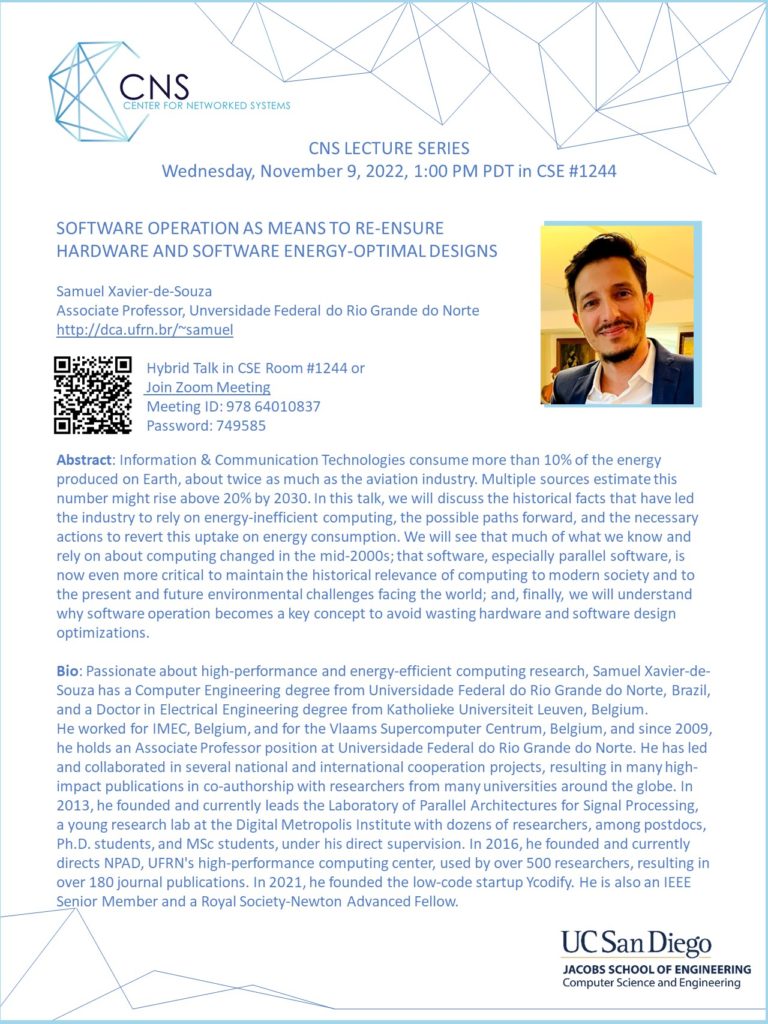 CNS LECTURE SERIES
CNS LECTURE SERIES
Wednesday, November 9, 2022, 1:00 PM PDT in CSE #1244
CNS Faculty Host: George Porter
Recording of Talk
“SOFTWARE OPERATION AS MEANS TO RE-ENSURE HARDWARE AND SOFTWARE ENERGY-OPTIMAL DESIGNS”
Samuel Xavier-de-Souza
Associate Professor, Unversidade Federal do Rio Grande do Norte
http://dca.ufrn.br/~samuel
Hybrid Talk in CSE Room #1244 or
Join Zoom Meeting: https://ucsd.zoom.us/j/97864010837?pwd=Y2kwN003YmJSVzZYQnNHZDIzVFVGdz09
Meeting ID: 978 64010837
Password: 749585
Abstract: Information & Communication Technologies consume more than 10% of the energy produced on Earth, about twice as much as the aviation industry. Multiple sources estimate this number might rise above 20% by 2030. In this talk, we will discuss the historical facts that have led the industry to rely on energy-inefficient computing, the possible paths forward, and the necessary actions to revert this uptake on energy consumption. We will see that much of what we know and rely on about computing changed in the mid-2000s; that software, especially parallel software, is now even more critical to maintain the historical relevance of computing to modern society and to the present and future environmental challenges facing the world; and, finally, we will understand why software operation becomes a key concept to avoid wasting hardware and software design optimizations.
Bio: Passionate about high-performance and energy-efficient computing research, Samuel Xavier-de-Souza has a Computer Engineering degree from Universidade Federal do Rio Grande do Norte, Brazil, and a Doctor in Electrical Engineering degree from Katholieke Universiteit Leuven, Belgium. He worked for IMEC, Belgium, and for the Vlaams Supercomputer Centrum, Belgium, and since 2009, he holds an Associate Professor position at Universidade Federal do Rio Grande do Norte. He has led and collaborated in several national and international cooperation projects, resulting in many high-impact publications in co-authorship with researchers from many universities around the globe. In 2013, he founded and currently leads the Laboratory of Parallel Architectures for Signal Processing, a young research lab at the Digital Metropolis Institute with dozens of researchers, among postdocs, Ph.D. students, and MSc students, under his direct supervision. In 2016, he founded and currently directs NPAD, UFRN’s high-performance computing center, used by over 500 researchers, resulting in over 180 journal publications. In 2021, he founded the low-code startup Ycodify. He is also an IEEE Senior Member and a Royal Society-Newton Advanced Fellow.
